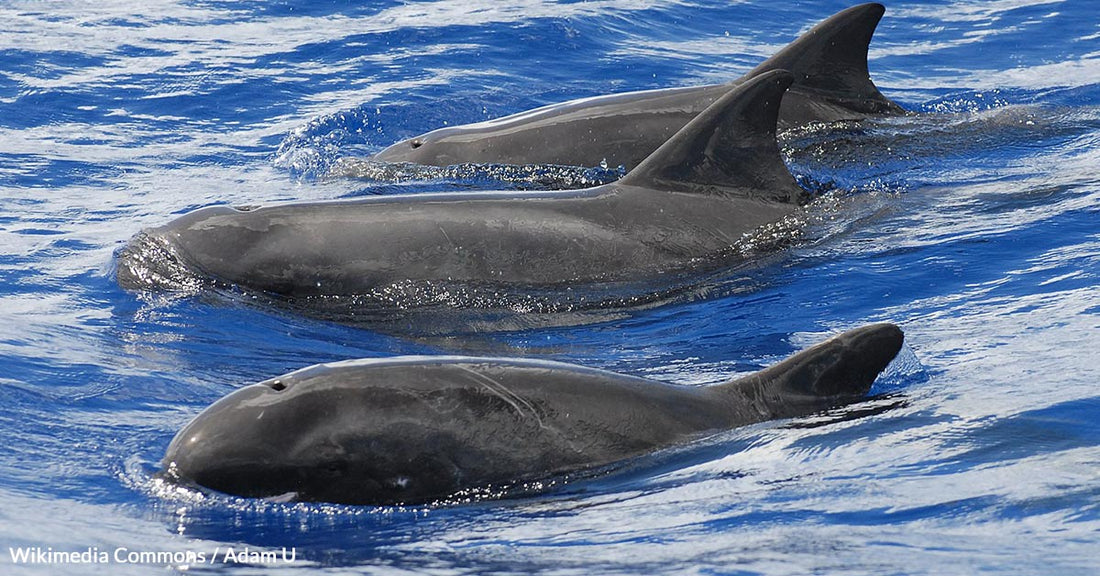Beachgoers In Guyana Unite to Rescue Stranded Pygmy Killer Whale
Matthew Russell
A small community in Guyana came together to rescue a stranded pygmy killer whale. The event unfolded on the Buxton Foreshore in East Coast Demerara, where a young whale lay vulnerable on the beach. Residents, government officials, and scientists quickly assembled to help the creature back to its home in the sea, Temp Networks reports.

Photo: Pexels
Pygmy whales are smaller than killer whales and are typically a solid dark color.
Expert Assessment on the Scene
The whale, a rare species in the region, was carefully examined by experts on the scene. Chief Fisheries Officer Denzil Roberts led the team alongside Fisheries Officers Kadeem Jacobs and Phillip Williams, reports the Guyana Chronicle. Marine biologists Mark Ram, Eric Stoll, and Rovindra Lakenarine, with support from Elford Liverpool of the University of Guyana, assessed the animal’s condition. They used wet cloths to cool and hydrate the whale and provided continuous care until it could be moved safely.
Local Heroes Lend a Hand
Local residents played a crucial role. Their hands-on support and fast response proved vital. Community members gathered water and helped lower the whale’s stress levels. Their determination shone in every moment, ensuring that the fragile creature was treated with utmost care. As Stabroek News reports, the rescue operation was a coordinated effort that spanned several agencies. The Ministry of Agriculture, Guyana Wildlife Conservation and Management Commission, the Environmental Protection Agency, and the Guyana Police Force all joined the mission, along with the Maritime Administration Department (MARAD), which helped transport the animal to the Demerara River Estuary.

Photo: Pexels
Pygmy whales are a rare species.
Understanding the Pygmy Killer Whale
The pygmy killer whale, scientifically known as Feresa attenuata, is not a true whale but a dolphin species with a sleek, dark body and a rounded head. Details of its physical traits are notable. The creature has a small, asymmetrical skull and prominent conical teeth, MarineBio reports. Its size, ranging between 2.1 to 2.6 meters in length, places it among average-sized dolphins rather than large whales. This rarity makes every sighting an event of high conservation interest.
Conservation Impact and Community Commitment
The incident has drawn significant attention from conservationists. The coordinated rescue operation demonstrates strong local commitment to marine life. The swift mobilization of experts and residents helped stabilize the animal, reduce its stress, and secure its safe return to the open water. Each participant, from officials to community volunteers, worked with clear purpose and determination. Their efforts highlight a strong sense of duty to preserve ocean biodiversity.
The rescue also provided valuable insight into the collaborative potential between governmental agencies and local citizens. Witnesses reported a palpable sense of pride as the team used practical methods to handle the situation.

Photo: Wikimedia Commons / Coast Guard, License: Public Domain
Environmental agencies joined the rescue effort.
Looking Toward the Future
As the Miami Herald reports, the rescue has sparked discussions on further enhancing marine wildlife protection in the country. The successful return of the whale to its natural habitat is a hopeful sign for future interventions and indicates that well-organized local action can make a significant difference in marine conservation efforts.
Scientists note that incidents like this underscore the need for continuous monitoring of coastal areas. While pygmy killer whales are not commonly seen in many parts of the world, they do appear in tropical waters and sometimes strand unexpectedly. The involvement of experts from the University of Guyana and their partners demonstrates how science and community service can work hand in hand to address such emergencies.
A Milestone in Marine Conservation
The rescue of this pygmy killer whale stands out as a milestone in Guyana’s ongoing marine conservation efforts. Local unity and immediate action brought the whale back to the ocean, ensuring its survival. The story serves as an inspiring example of community-led environmental protection and a reminder of the fragile balance in our oceans.

